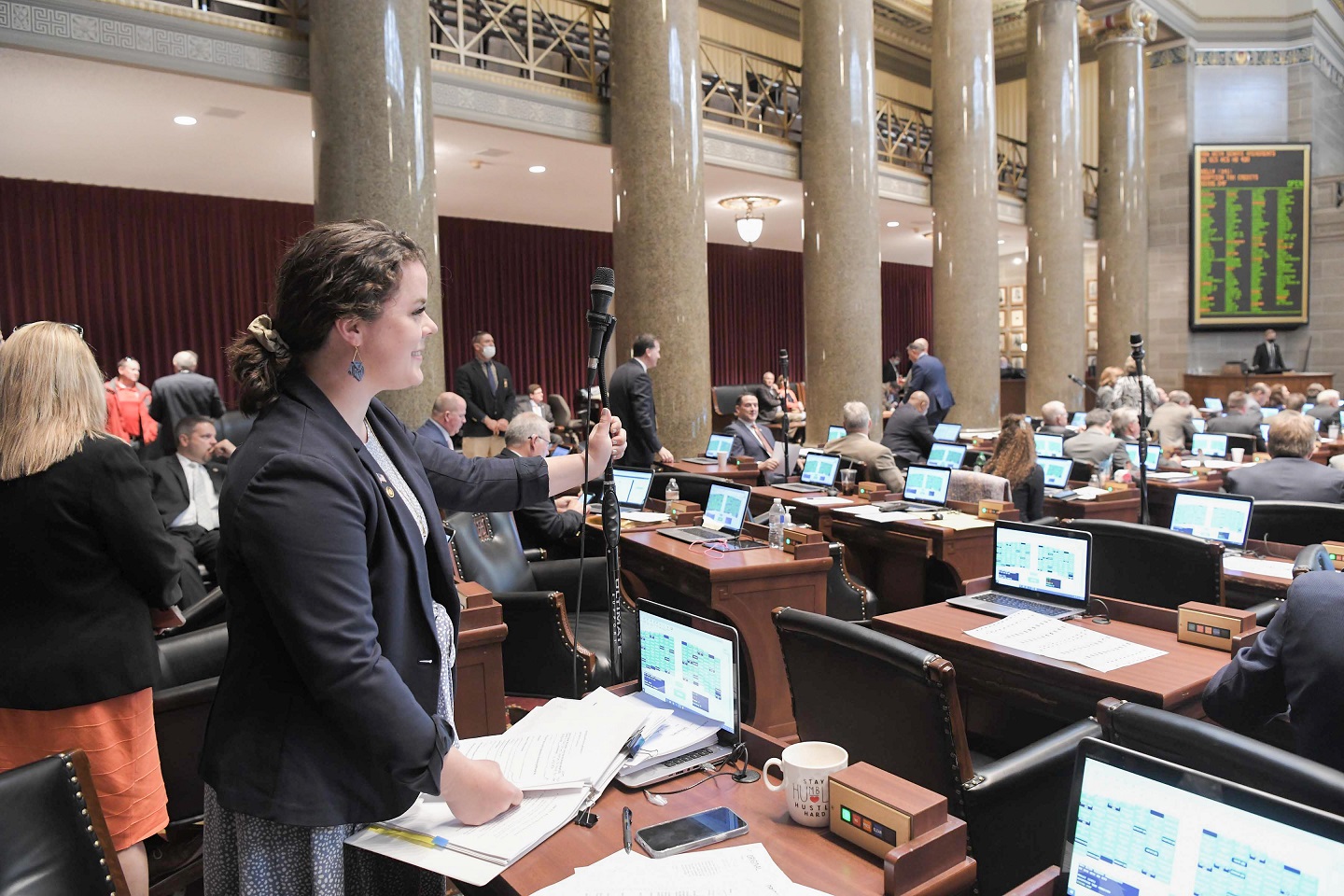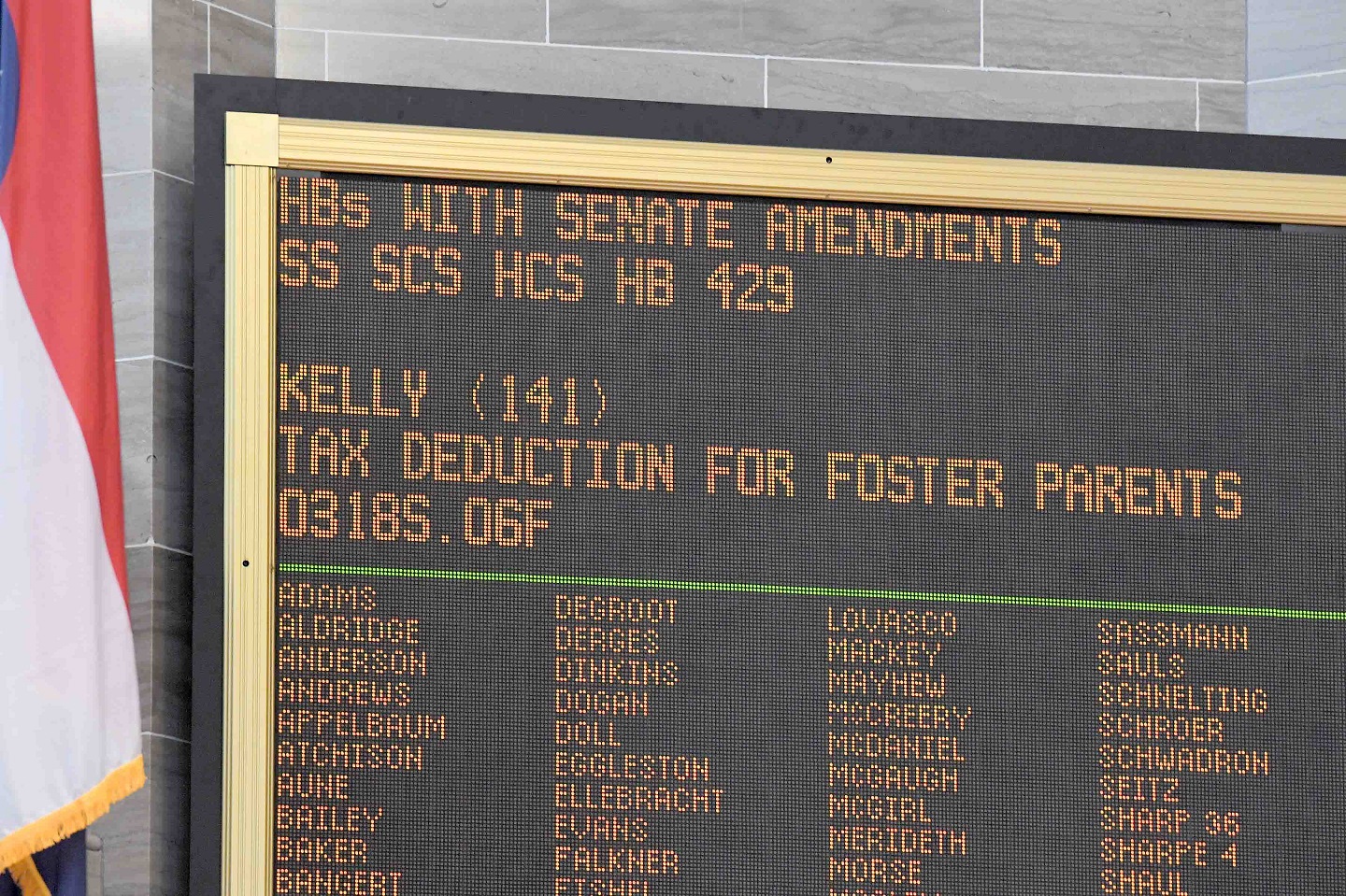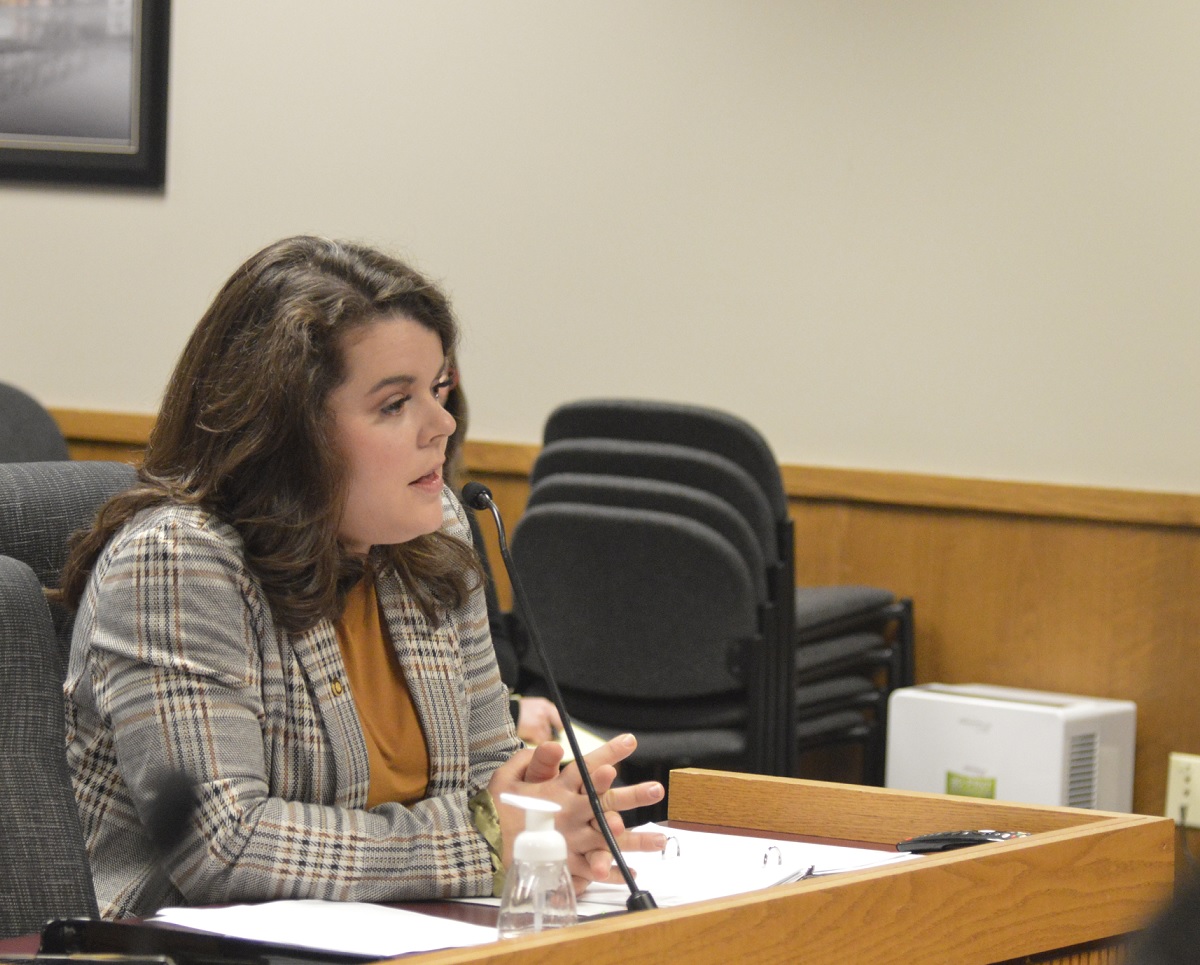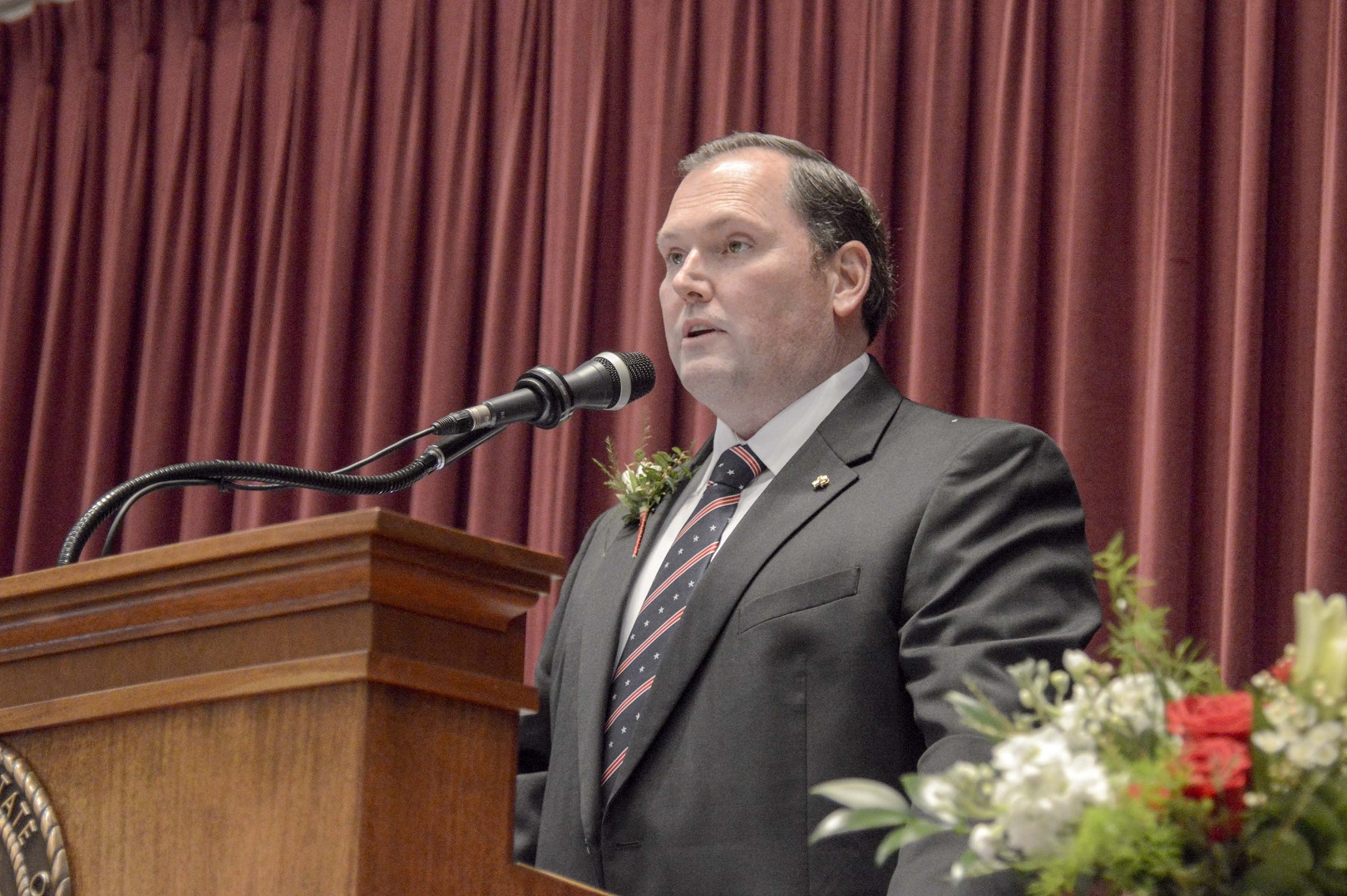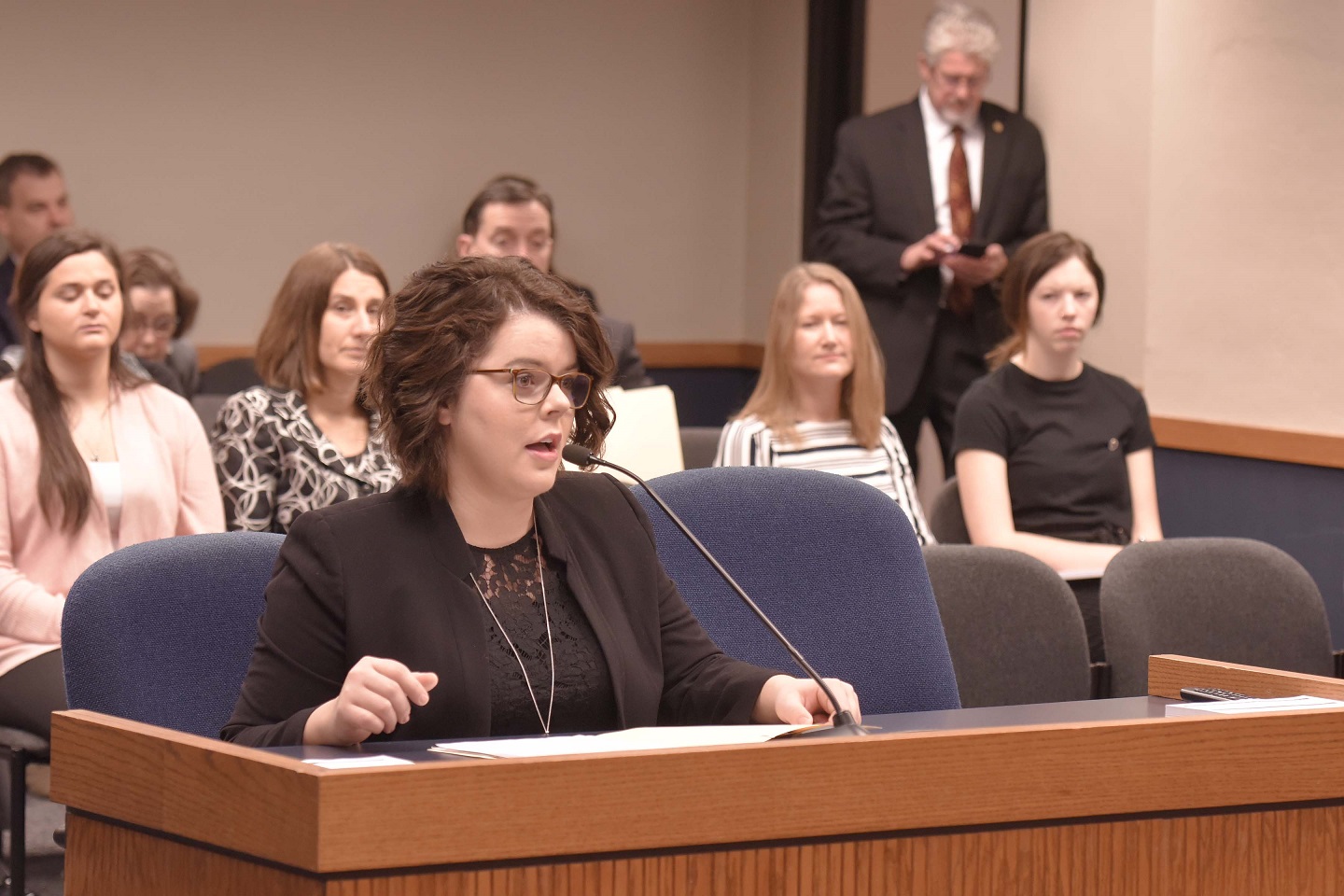Missouri legislators passed a package of measures intended to protect victims of sexual and domestic violence and trafficking before the 2022 regular session drew to a close on May 13. Senate Bill 775 contained language sponsored by several House members, and now awaits action by Governor Mike Parson (R).

“It’s our big legislative win for this session,” said Jennifer Carter Dochler, who was the legislative liaison for the Missouri Coalition against Domestic and Sexual Violence during the regular session.
The bill was handled in the House by Representative Hannah Kelly (R-Mountain Grove), who was glad to see it reach the governor’s desk despite issues in the legislature that created challenges for all legislation this year.
Kelly said of particular importance to her, personally, in SB 775 is the language that establishes the “Sexual Assault Survivors Bill of Rights.” This seeks to make sure victims know their rights regarding the gathering of evidence and related medical exams; access to incident reports; and protections from intimidation and harassment by an attacker.
Kelly said someone important in her life is a victim of rape and, “The provisions in this bill, I believe, would’ve brought justice for this person in a swifter manner.”
The Bill of Rights portion is meant to, among other things, give some clarity and guidance to victims, who often find themselves traumatized and with no knowledge of what to do or to whom to turn.
“All [that a victim knows] is a really horrible thing has happened that nobody ever dreams will happen to them,” said Kelly. “The heart and soul of it is protecting victims and providing stronger protections and providing education … and what greater cause to unite behind than educating and empowering victims in these horrible situations to know what their rights are and to know the pathway by which they can appropriately seek justice.”
SB 775 also clarifies definitions in Missouri law regarding “sexual contact” and “sexual conduct.” Representative David Evans (R-West Plains) said he dealt with at least one case, during his 28 years as a judge, in which unclear definitions regarding contact with minor victims hindered prosecution.
“Taking ambiguous law or badly written law and making it clear is important clearly for the victims of crime but also clarifies, which is required in criminal law, exactly what the crime is,” said Evans. “None of us can be convicted of a crime that’s ambiguous. That’s protection under due process … it’s good to have specific law especially when you’re dealing with a very serious felony.”

SB 775 would specify that no persons younger than 18 will be prosecuted for prostitution, and if located by law enforcement while engaged in commercial sexual acts, they will be considered a victim of abuse and referred to the Children’s Division and juvenile officers to receive help. It also eliminates the requirement that a person under 18 and charged with prostitution must prove they were coerced to avoid conviction.
These were provisions found in legislation sponsored by Representative Ed Lewis (R-Moberly), who said the laws regarding these individuals needs to be focused on getting them help.
“A lot of times a minor can be in that lifestyle and not even know that they’re being trafficked, not even know that they’re being abused. They think, ‘Well no, I’m doing this of my own free will,’ but they’re not. They’re being abused and used by some adult for their own gain, and we have to get them the help they need to help them to understand that this is not right,” said Lewis. “Instead of looking at these people who have come to rescue them as rescuers they can look at them as the enemy and we have to make sure that they get the help that they need so they understand what their outcome should be and how to get back to what we would call a normal life free of abuse.”
Other related sections deal with prosecuting those who attempted to engage in sexual acts or pornography-related offenses with individuals under 18.
The bill also contains language sponsored by Representative Lane Roberts (R-Joplin) dealing with orders of protection. It would state that a person with an order of protection against them cannot skip a court date regarding that order and then plead ignorance to knowing it was still in effect. He and Carter Dochler say this defense has often been successful for abusers who would violate an order and then say they didn’t know it was in place because they didn’t attend a hearing.
Roberts has often said that this and other proposals he has filed stem from his time in law enforcement – including as Joplin’s police chief and the director of the Department of Public Safety – and times in his career when he couldn’t help a victim because of how the law was written.
Along that same line, Roberts said a provision in SB 775 that is important to him is one that allows victims to testify via video rather than have to appear in court for a domestic violence proceeding.

Roberts says too often, a victim is afraid to proceed with prosecution for fear or retribution by their abuser. This provision addresses that fear; specifically that requiring a victim to appear in court creates an instance in which their abuser will know where and when to find them.
With all these issues, legislators have to craft language that protects victims but also allows for due process for those who are accused. Evans believes with SB 775, Missouri gets closer to finding the right balance between those considerations, “and again that’s one thing I really enjoy doing, is balancing the rights of those that are charged but making it absolutely clear to protect the victims of the crimes as well. I think we’re getting there.”
The House vote that sent SB 775 to the governor was 141-0. Carter Dochler said the Coalition is, “very grateful and really excited [that] at a time where there has been so much turbulence on different issues that everybody could really come together and find agreement on items that would make things better for victims of domestic violence or sexual assault, or some other related judicial proceedings.”
SB 775 includes several other provisions, including those that would make it a crime for any coach of minors to abuse a minor, whereas currently law speaks only to high school coaches; extends protections against the release of a victim’s personal information to include their personal email address, birth date, health status, or any information from a forensic testing report; and further restricts when the prior sexual conduct of a witness or victim in a sexual offense case may be inquired about in a legal proceeding.


